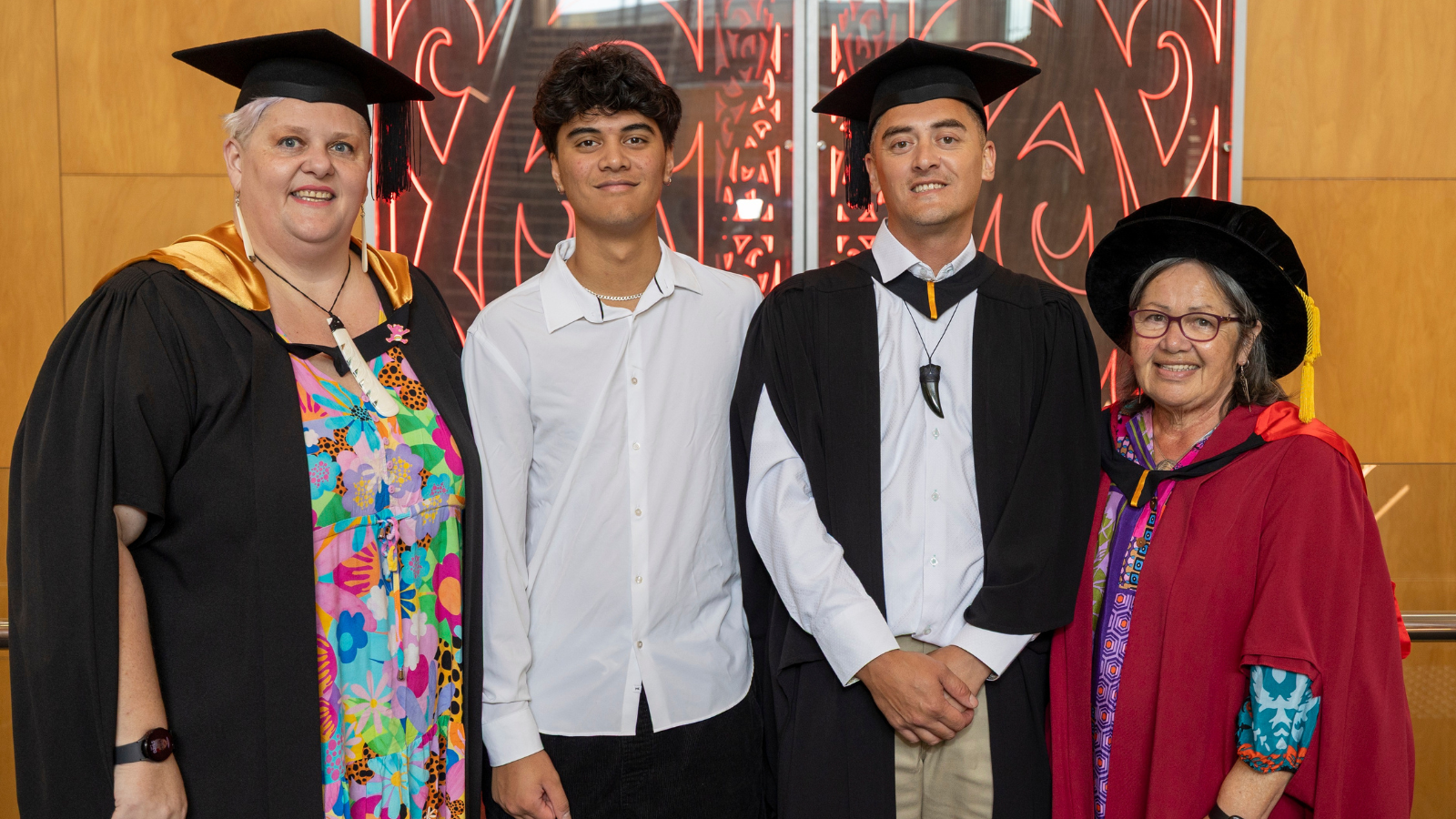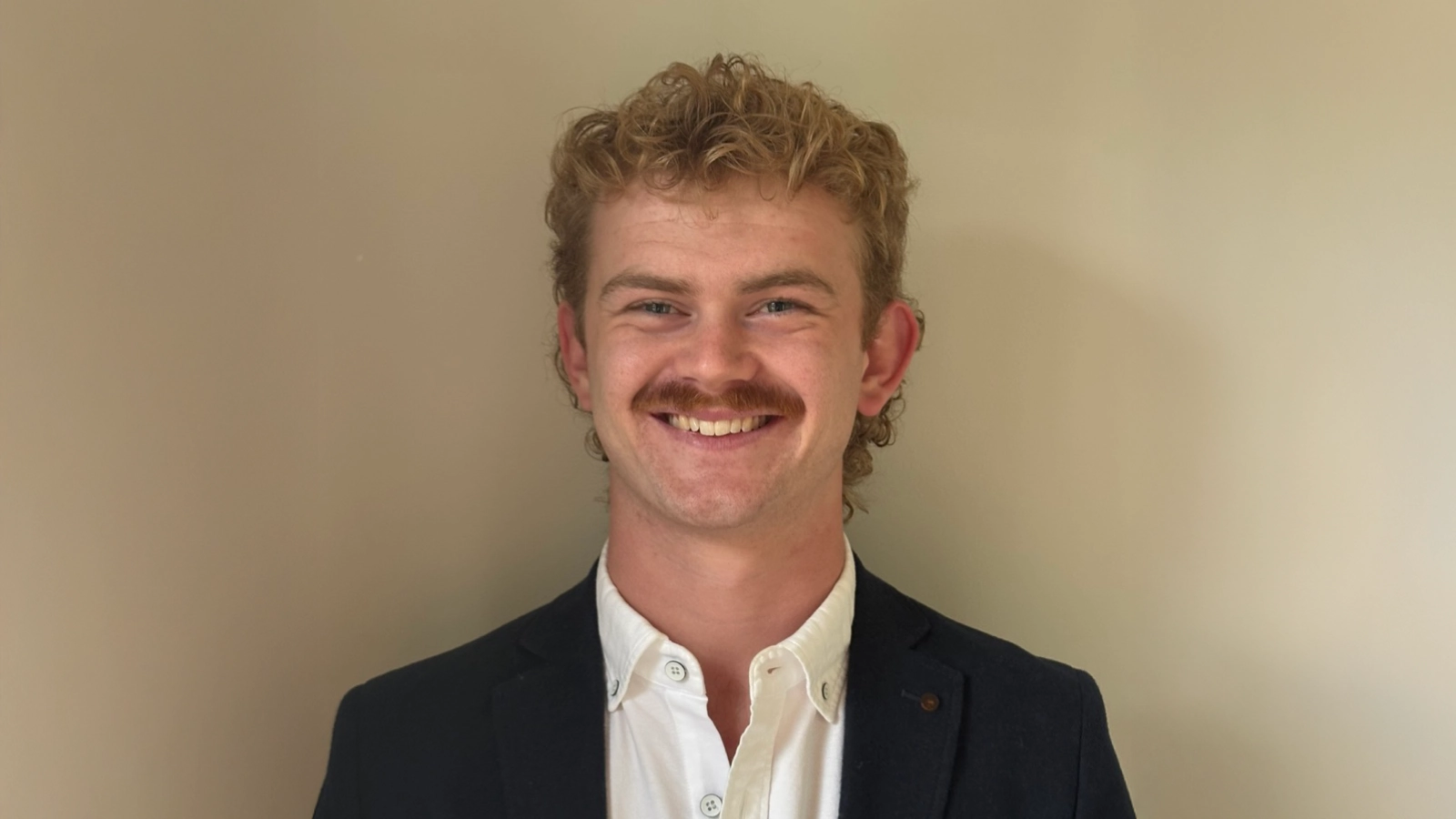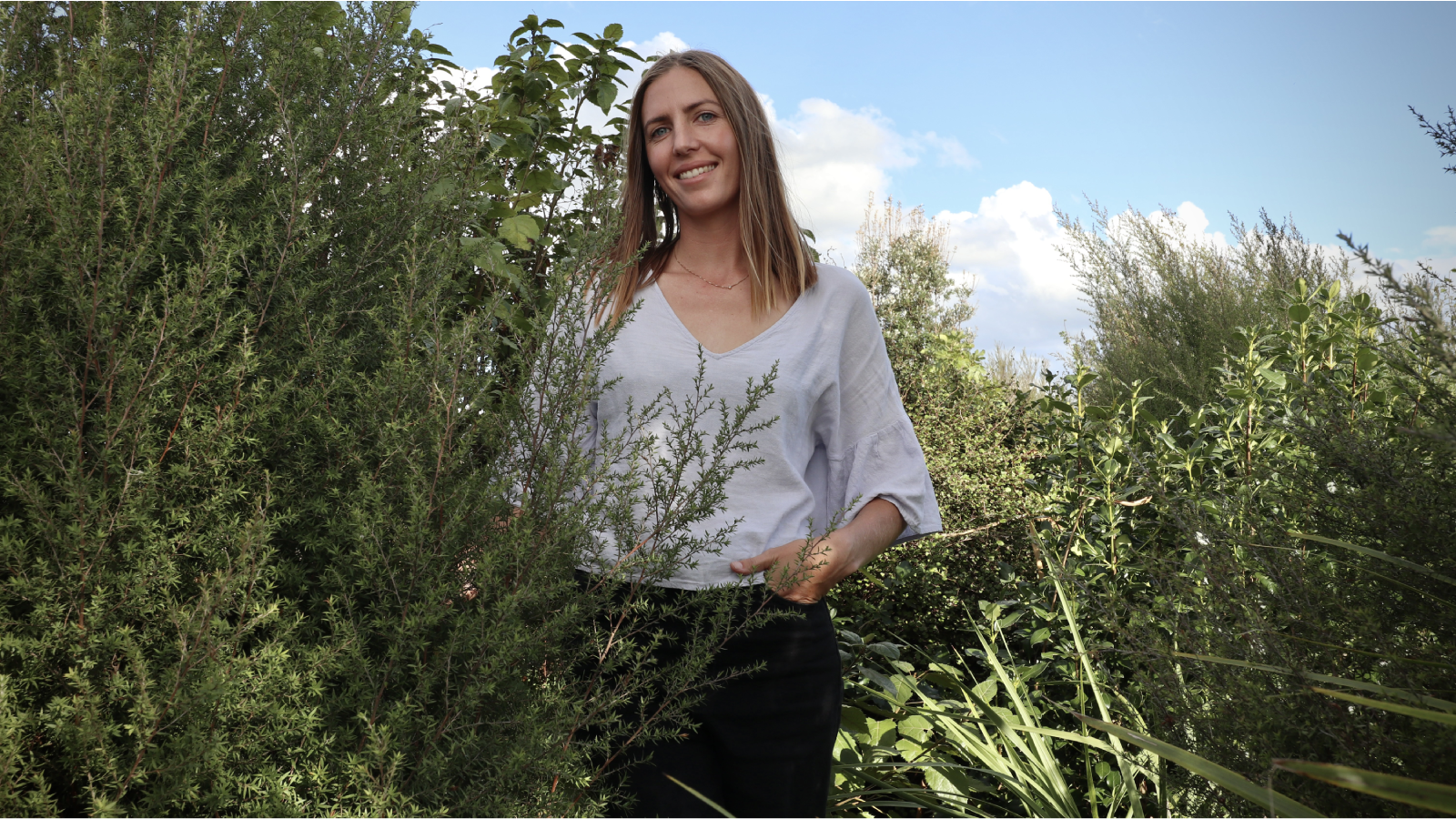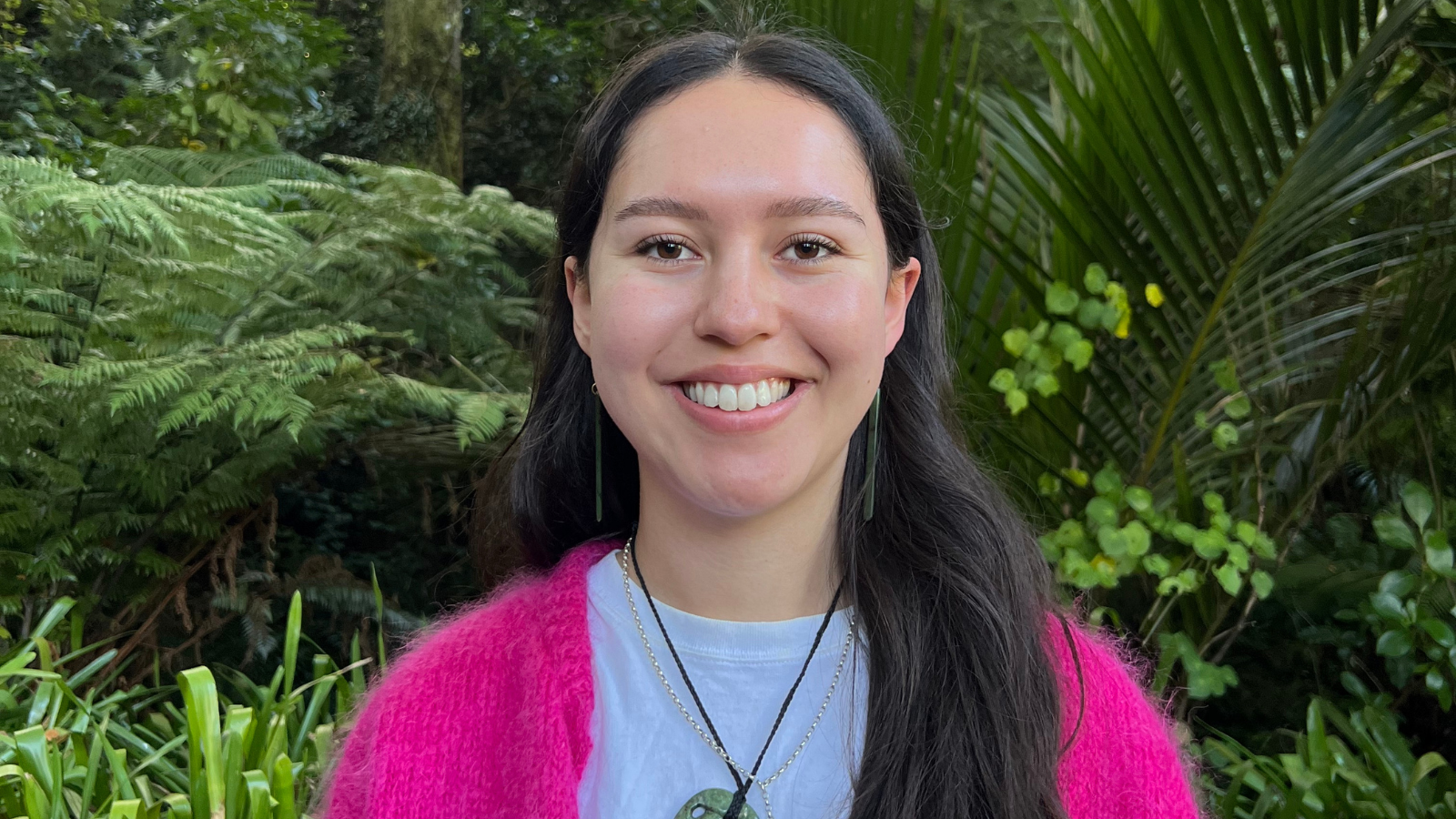Aidan’s koro, who passed away the same year, saw traits in his grandson that would make a difference to his people. Aidan says, “I don’t know what it was, maybe it was because I was argumentative, but he saw something in me and his advice stuck with me.”
In October 2021, Judge Aidan Warren was sworn in to the Māori Land Court and the vision of his koro was fulfilled.
Aidan grew up in the Hawke’s Bay and attended Te Aute College with a group of competitive friends who aspired to be the best in the class. This competitiveness coupled with his grandfather’s advice meant that during high school Aidan was always on track for his goal. In 1994, he enrolled in a Bachelor of Laws in Te Piringa - Faculty of Law, just three years after the Faculty opened.
“I’m glad that I chose Waikato because of the bicultural focus and the relaxed atmosphere. We had great mentors and Māori staff,” says Aidan. “The University’s motto ‘Ko Te Tangata – For the People’ is what I took away. We learned law in context; it was people focused and reflective of our community and that has been a big part of my practice.”
After completing his degree, Aidan joined McCaw Lewis Lawyers in Hamilton where he worked for 21 years. He gained a reputation as a strong mediator and facilitator of disputes which allowed his clients to negotiate settlement without using the court system.
He started as a mediator when he saw a need for formal negotiation for Māori, and Aidan says mediation and facilitation play to his strengths. “I am an intimate person who tells stories, listens and brings people together through a process that will have an outcome to allow them to move on. That korero is key.”
It is these skills that Aidan will use in his new role as a judge. “It’s a people’s court - people from all walks of life, predominately Māori and without lawyers come to that court,” he says.
“By using skills of breaking down technical legal concepts into plain English or te reo Māori, I can help people be a part of the resolution process. All Māori Land Court judges can be appointed as a mediator and that was a big reason why I chose that court.”
The decision to make the career move to a judgeship was spurred by the 2020 nationwide lockdown. “The first lockdown gave me a chance to reset on a range of fronts. I decided that my family was in a good place and I needed to allow others into management. All things aligned and I decided to go through the process and I was lucky to come out the other end.”
Aidan is aware of the work ahead of him. “I want this court to lead indigenous alternative dispute resolution mahi across the world. We need to ensure there is a tikanga-based process and allow for one person’s tikanga to be different to another person’s. There is a lot of work to be done in that area and I am keen to be heavily involved in leading it.”

University of Waikato Law alumnus Aidan Warren
He is also eager to help New Zealanders heighten their understanding of the Treaty and Māori Land Court processes. “This court is the descendant of something that is dark in our history. The 1865 Native Lands Act was established to allow the court to take Māori land from their hands. When New Zealanders see challenges in the media about occupation of land, they need to understand the context that drives that. Judges have to be appreciative of that and help people move forward.”
Aidan’s advice to the next generation of tertiary students is to take time to learn te reo Māori me onā tikanga tikanga. “Waikato University is the best place in the world at a tertiary level to be able to nail those things. That’s one thing I would encourage people to do, and it’s something I wish I did with a lot more vigour.”



